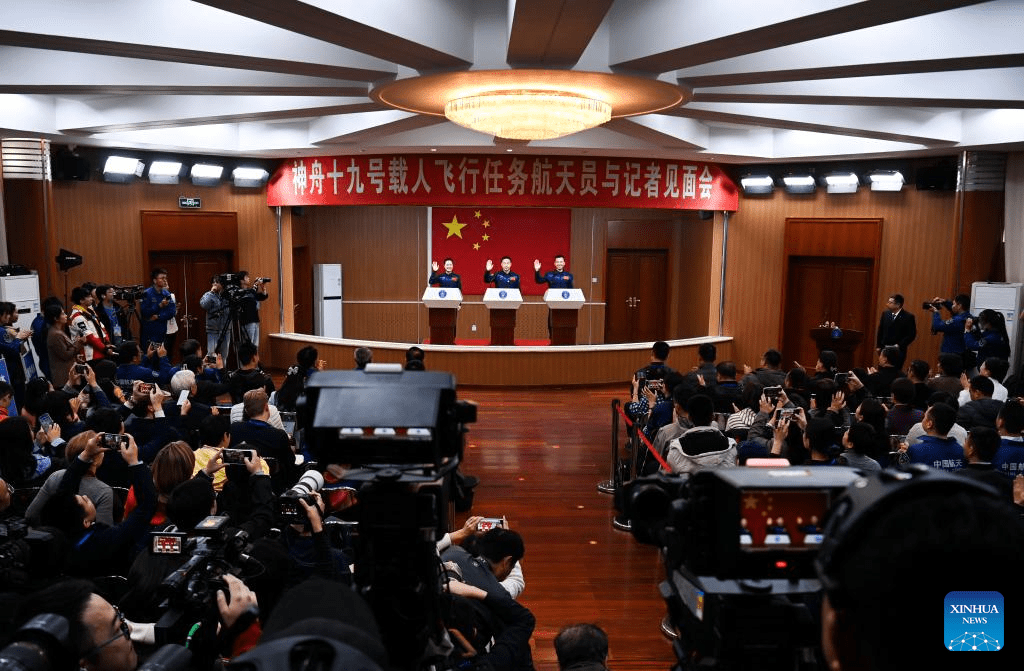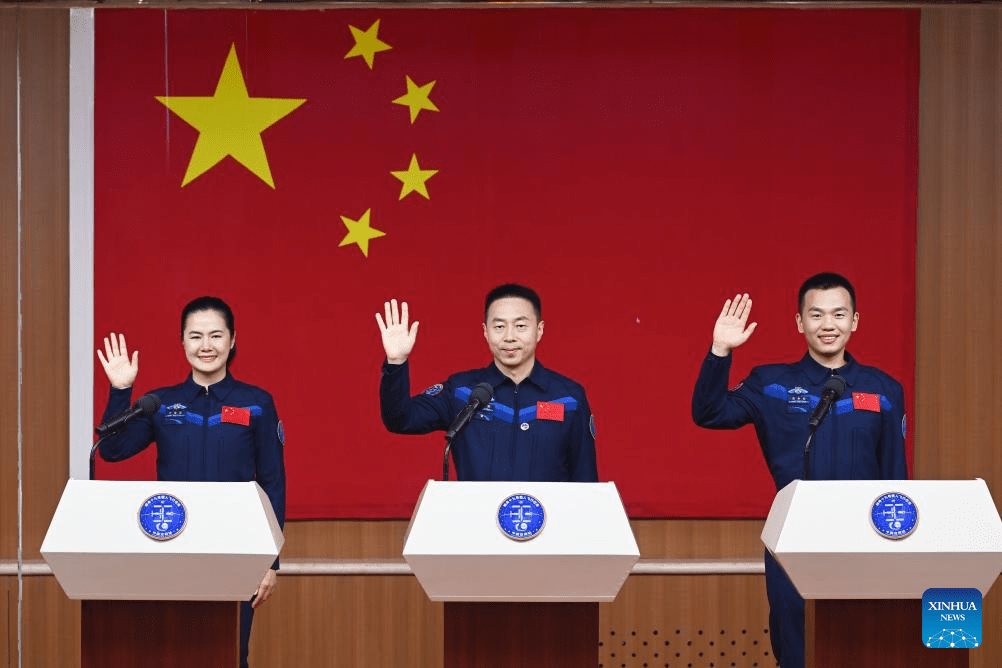JIUQUAN, Oct 29 - Chinese astronaut Cai Xuzhe (pictured in the middle), Song Lingdong (right) and Wang Haoze will carry out the mission with the Shenzhou -19 space station crew and Cai will be its commander, the China Manned Spaceflight Agency (CMSA) announced at a press conference on Tuesday.
Agency spokesperson Lin Xiqiang said the launch of the Shenzhou-19 crewed spacecraft is scheduled for Wednesday at 4:27 a.m. Beijing time from the Jiuquan Satellite Launch Center in northwest China.
Cai will complete the Shenzhou-14 space mission in 2022. Song and Wang, who are among the third batch of Chinese astronauts, are new to space. Both were born in the 1990s.
Song was an Air Force pilot before being selected as an astronaut, and Wang previously served as a senior engineer at the Academy of Aircraft Propulsion Technology under the China Aerospace Science and Technology Corporation.
Wang is currently China's only female engineer for spaceflight and will become the third Chinese woman to embark on a manned flight, the agency noted.

The Shenzhou-19 astronauts will complete an orbital rotation with the Shenzhou-18 trio and will remain on the Tiangong Space Station for approximately six months. During the mission, they will witness the arrival of the Tianzhou-8 cargo ship and the Shenzhou-20 crewed spacecraft.
When Commander Cai, 48, spoke about his upcoming trip back to space, he said the busy space life during his previous mission is still vibrant.
From a space rookie in the Shenzhou-14 trio, he has now become the crew chief of Shenzhou-19. Cai said he feels proud and has a greater sense of responsibility. He pledged to do everything he and his colleagues can to improve the quality of operations and emergency response capability.
The new crew will have many tasks ahead of them, including conducting space science and application tests, performing extravehicular activities, installing space debris protection equipment, and installing and recycling extravehicular cargo and equipment. They will also undertake science education, public outreach activities and other payload tests.
"The safety of astronauts is always a top priority for governments and people around the world," said a CMSA spokesman, adding that China was also paying close attention to the delayed return of two US astronauts who remained on the International Space Station.
"We wish both astronauts a safe return," Lin added.

He stressed that China is continuously improving its emergency response plan for potential threats such as space debris. The time available for astronauts to respond to emergencies has now increased by a factor of five compared to the initial phase of operation of the Chinese space station.
According to Lin, astronauts aboard the space station have two options for return in extreme situations: they can either return using the spacecraft in orbit or wait for the launch of an emergency rescue spacecraft.
The return of the Shenzhou-19 astronauts to the Dongfeng landing site in North China's Inner Mongolia Autonomous Region is scheduled for late April or early May next year, according to the CMSA.
Xinhua/ gnews- RoZ
PHOTO - Xinhua/Li Zhipeng, Wang Jiangbo



